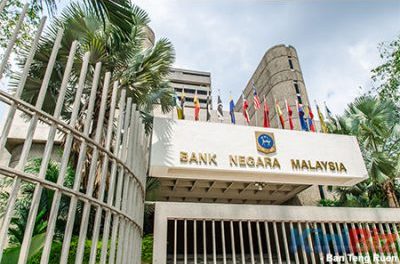EPF to start RM100bil Islamic retirement plan
The Employees Provident Fund (EPF) is expecting almost a quarter of its members to migrate to an Islamic retirement plan in its first year alone. It plans to open the syariah-compliant plan in January 2017 and targeting an initial size of up to RM100 billion, said CEO Datuk Shahril Ridza Ridzuan. Citing strong demand, he said that about 1.5 million of its 6.7 million members should switch in the first year. Malaysians are required by law to contribute to EPF, and the fund accounts for more than 85% of assets in the country’s provident fund system, according to the Asian Development Bank. (The Star Online)
Malaysia pays bigger premium in debt sale
Malaysia paid a bigger premium to bondholders to own some of its new Islamic debt as a delayed interest payment by its troubled state investment fund weighed on demand. The government priced US$1 billion (RM3.88 billion) of 10-year notes at a wider spread than an offering a year ago. The sale, which also included US$500 million of 30-year notes, drew US$6.3 billion of orders, compared with US$9 billion for an issuance of the same size in April last year. Malaysia warned investors that it faces as much as US$4.5 billion in potential liabilities as government investment company 1MDB remains locked in a disagreement with Abu Dhabi’s sovereign wealth fund over debt obligations, leading to a delay in interest payment of US$50 million on 1MDB bonds. (The Edge Markets)
KP Orion Tower to be tallest building in East Coast
Kuantan’s KP Orion Tower is set to be the tallest building in the East Coast when it is completed in end-2018. The RM713 million tower is located on a 5.5ha site leased by Kuantan Port Authority (KPA). It will be built in three phases beginning September at the Free Trade Zone. The tower will house three- and four-star hotels, designer brand outlets and smart-space offices, and is expected to give added value to the Kuantan Port and its surrounding area in terms of technology and architecture heading into Vision 2020. (Bernama)

Artist’s impression of KP Orion Tower
Penang tells PR1MA to cut prices, sizes for housing projects
Penang is urging Putrajaya-owned PR1MA Corporation Malaysia to reduce the prices of its proposed housing projects to below RM300,000 and review a massive housing project planned for Balik Pulau. PR1MA had submitted approval applications for four projects in Penang but some required revisions, said state housing development committee chairman Jagdeep Singh Deo. The Balik Pulau project, which was received last Friday, was met with opposition, as it proposed nearly 10,000 units priced up to RM510,000 each in the green and rural area. In addition, Balik Pulau has a 16-storey limit for high rise buildings and yet PR1MA had submitted applications for 29 blocks of between 23 and 27 storeys of high rise buildings. (The Malay Mail Online)
Graduates unable to obtain new loans due to poor PTPTN repayments
Graduates who long to buy cars, property or obtain credit cards may not be able to do so if they have a record of poor repayments of National Higher Education Fund Corporation (PTPTN) loans. This is because their records have now been included in the Credit Central Reference Information System (CCRIS) database, as part of PTPTN’s efforts to recover approximately RM8.3 billion in unpaid loans. So far, PTPTN has only succeeded in recovering RM7.5 billion out of RM15.8 billion loaned. Many local car dealers reported a high volume of rejected loan applications due to inconsistent servicing of student loans, while the Association of Banks Malaysia (ABM) said that records of poor repayment could reflect negatively on new loan applications. (Free Malaysia Today)
Related article: Don’t let PTPTN debt affect your chances of getting a housing loan!
Record high for electricity demand in Peninsular Malaysia
Demand for electricity in Peninsular Malaysia reached a record high of 17,788 megawatts (MW) two days ago, according to Tenaga Nasional Berhad (TNB). It was a 37.82% increase compared to demand on Jan 1 due to the El Nino phenomenon. The hot weather has influenced the use of appliances such as air conditioning units which are used relatively more often than other appliances, and this has led to higher level of electricity usage. TNB said that the use of units that are not maintained properly could cause the consumption of electricity to increase. Reducing the temperature, increasing fan speed and prolonged use of air conditioning units caused the spike in usage while ultimately resulting in higher bills. (New Straits Times Online)





